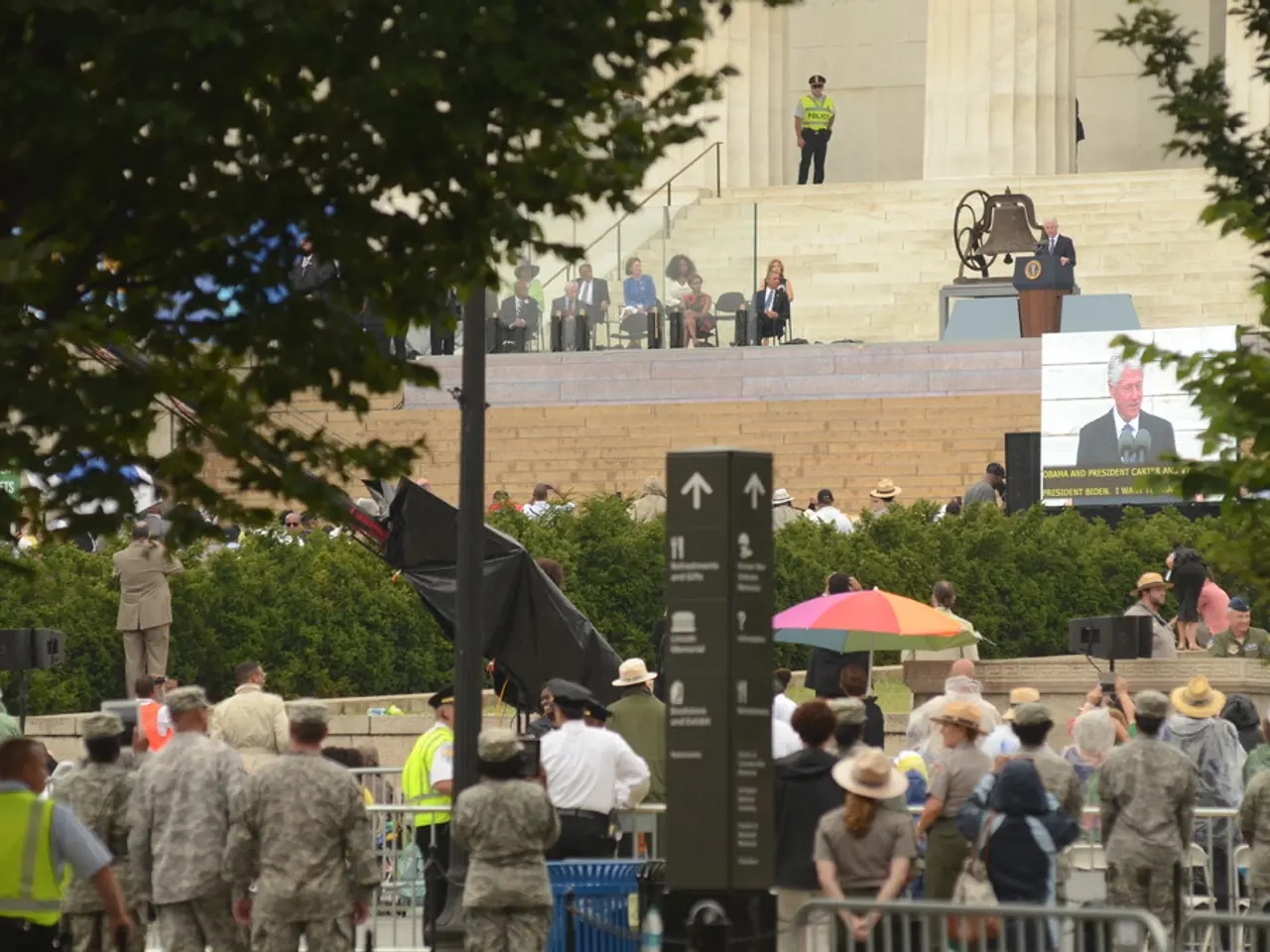Security Force Collaboration at Home and Abroad: Impact on Internal Military and International Civil Associations
In the complex world of international security, the United States has long been a significant exporter of military- and security-related services. However, recent events have raised concerns about the optics of potential degradation in the United States' own civil-military norms, and how this may undermine its ability to impart the right message on the value of professional and healthy civil-military relations in partner nations.
This concern is especially pertinent in the Sahel region, where several regimes are thirsty for non-Western security alternatives. The region has witnessed a dramatic resurgence of coups, posing a direct threat to US interests. In such an environment, it is incumbent on the United States to develop creative ways to compete against malign influencers.
The importance of civil-military relations in the U.S. lies in preserving democratic civilian control and a professional military ethos. This relationship, rooted in the American Revolution and solidified over centuries, prevents major civil-military conflicts such as coups and safeguards democratic governance. The military is integrated into the civic fabric of the nation, essential for securing constitutional liberties and national defense, thereby enabling stable civil society and the rule of law.
Effective civil-military relations enable clear direction and oversight of Security Force Assistance (SFA) activities, a set of DoD activities that support the development of the capacity and capability of foreign security forces and their supporting institutions. SFA programs, such as those in the Indo-Pacific with the Philippines, depend on a broad network of allies and innovative cooperation, reinforcing international security and U.S. strategic interests.
However, the region's volatile civil-military relations in recent years have limited the choice of available partner nations. Would-be recipients must rectify human rights issues and civil-military challenges for eligibility. Analysts point to a critical need for SFA in the Sahel to prioritize civil-military relations, as this can improve the overall security environment, enhance the prospects for military professionalism, regime durability, and deter adversaries from gaining traction and influence.
Recent scholarship suggests that members of recipient militaries absorb norms indirectly, meaning through passive observation or socialization arising from their interactions with US personnel, regardless of the norms that trainers are formally teaching. There is a concern that efforts to impart norms like civilian control of the military and respect for human rights in recipient militaries may not consider how recipient militaries will respond when these norms come into conflict.
The time for self-reflection on the health of US civil-military relations is now, lest the United States risks transmitting the wrong values at best, and a crisis of legitimacy at worst. The article is part of a series titled "Rethinking Civ-Mil" that discusses expert commentary on civil-military relations in the United States.
When asked how much they trust the military, 56% of Burkinabes, 62% of Malians, and 70% of Nigeriens responded with "a lot." In contrast, in the most recent survey wave, 50% of Burkinabes, 26% of Malians, and 31% of Nigeriens invoked support for military rule. These figures highlight the importance of maintaining the United States' own civil-military norms while engaging in SFA programs abroad.
The United States is bound by institutional constraints like the Leahy amendment and coup-related aid restrictions. Joint Publication 3-20, Security Cooperation, stresses the "strict legal authorities" in the realm of security cooperation, including the requirement that US activities in this space are designed to enhance the capacity of partners in exercising responsible civilian control of the military.
The Wagner Group's future is unclear following the death of its leader. In Mali, the Wagner Group has now fully replaced the French. As the United States navigates this complex landscape, it must continue to prioritize civil-military relations in its SFA programs, ensuring the long-term stability and security of partner nations, and upholding its commitment to democratic values and professional military ethos.
- In the debate on civil-military relations, the USA's role as a significant exporter of defense and security services comes under scrutiny, with concerns about the potential impact of domestic civil-military norm degradation on its ability to convey the importance of professional relations to partner nations, particularly in the volatile Sahel region.
- Given the resurgence of coups in the Sahel, it is crucial for the USA to develop innovative strategies to compete against malign influences and promote effective Security Force Assistance (SFA) activities, which depend on healthy civil-military relations for success.
- SFA programs, like those with the Philippines in the Indo-Pacific, rely on extensive cooperation with allies and depend on strong civil-military relations, enhancing international security and US strategic interests.
- However, the volatile civil-military relations in the Sahel limit the pool of potential partner nations, with recipient countries needing to address human rights issues and civil-military challenges to be considered eligible for SFA.
- The future of groups like the Wagner Group remains uncertain, but as the USA navigates complex war-and-conflicts landscapes, it must maintain a commitment to prioritizing civil-military relations in its SFA programs, upholding democratic values, and ensuring the long-term stability and security of partner nations.






